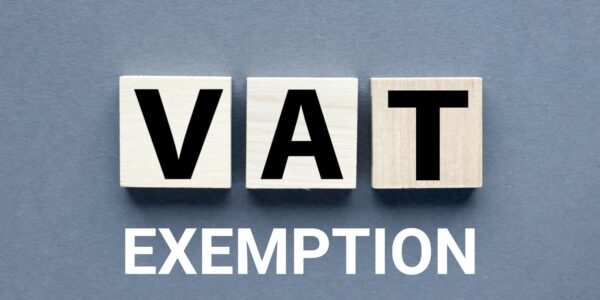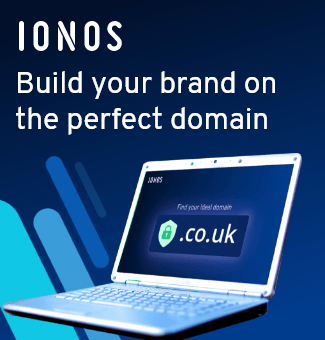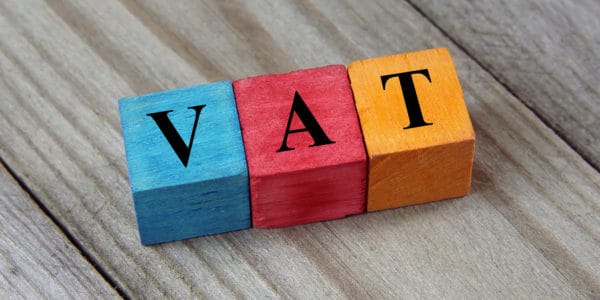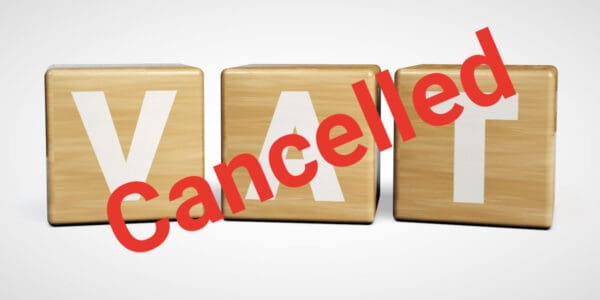Certain goods and services are exempt from Value Added Tax (VAT), which means they are not subject to this tax charge. VAT exemption applies to your business if you sell or supply only exempt goods or services to your customers. Under these circumstances, you cannot register for VAT, charge VAT on sales, or reclaim VAT on purchases.
Some businesses can receive partial exemption, depending on the types of supplies they make. If all or most of the things you sell are zero-rated, you can also apply to HMRC for an exemption from VAT registration.
In this post, we explain VAT exemption in detail and discuss the impact it can have on your business. We also look at partial exemption, the options available to you if you supply zero-rated goods or services, and how to apply for VAT exemption.
Understanding VAT exemption
VAT is added to the sale price of most goods and services (‘supplies’) at all or most stages of the supply chain. VAT-registered businesses must charge VAT on any VAT-taxable supplies they provide to their customers. They can also reclaim VAT on business-related goods or services they buy.
VAT-taxable (or ‘VATable’) supplies are charged at the standard rate (20%), reduced rate (5%), or zero rate (0%). Certain items do not attract any VAT rate at all. These are known as exempt goods and services.
If you sell or supply only exempt goods or services, your business is exempt from VAT. As an exempt business, you cannot:
- register for VAT
- include VAT in the price of anything you sell or supply (this type of VAT charge is known as ‘output tax’)
- claim back any VAT you pay on business purchases or expenses (this type of VAT is known as ‘input tax’)
VAT exemption also applies to your business if everything you sell or supply is ‘outside the scope’ of VAT.
Furthermore, if your business supplies mainly or only zero-rated goods or services, you can apply for VAT exemption. We discuss this in more detail later in the post.
If your business is based in Northern Ireland
The rules are different if your business is based in Northern Ireland. In this situation, you must register for VAT if you sell only VAT-exempt or out-of-scope goods or services, but purchase goods for more than £90,000 from any EU VAT-registered suppliers to use in your business.
Partial exemption
If you make (or intend to make) both VAT-taxable and non-taxable (VAT-exempt or out of scope) supplies and incur VAT on costs relating to both, your business is partly exempt from VAT.
As a partly exempt business, you must register for VAT when taxable turnover is more than £90,000 (the VAT registration threshold). VAT-exempt sales do not count toward your VAT-taxable turnover. However, the option of voluntary VAT registration is available when your taxable turnover is below the threshold.
Once registered, you can recover the VAT paid on purchases relating to the following types of taxable goods and services you provide to your customers:
- VAT-taxable supplies
- ‘foreign’ supplies – these are supplies you make outside the UK that would be VAT-taxable if you sold or provided them in the UK
- ‘specified’ supplies – certain exempt supplies specified by Treasury Order
These types of supplies are known as supplies with the ‘right to deduct’ input tax.
Partial exemption can be complex, because you need to keep separate records for your exempt sales and provide details of how you calculated the VAT you want to reclaim.
If you make both taxable and exempt supplies, you must keep a separate record of your exempt sales, submit a quarterly VAT Return to HMRC, and provide details of how you calculated the VAT you’re reclaiming.
Which goods and services are exempt from VAT?
There are a number of goods and services that are exempt from VAT, including certain:
- supplies of sport, physical recreation, and physical education services
- leisure supplies, such as betting and gaming, bingo, and lottery ticket sales
- admission charges to cultural exhibitions and events
- disposals of antiques or art from historic houses
- health services provided by health professionals
- education, research, vocational training, examination services, and goods and services connected with these activities
- admission charges, fundraising events, and sponsored events relating to charitable organisations
- transactions involving the selling, leasing, or letting of property, land, and buildings
- garages, parking spaces, and houseboat moorings
- financial services and investment, including insurance-related transactions and services
For some supplies, exemption relies on specific conditions or particular circumstances being met, such as:
- who is providing or buying the goods or services
- where they are provided
- how they are presented for sale
- the precise nature of the supplies
- whether the business obtains the necessary evidence
- maintaining the right VAT records
- whether the supplies are provided with other goods and services
’Out of scope’ goods and services
Certain supplies are non-taxable, because they are outside the VAT tax system. These are known as ‘out of scope’ supplies and you can’t charge or reclaim VAT on them. They include:
- goods or services that you buy and use outside of the UK
- statutory fees (e.g. the London congestion charge)
- goods that you sell as part of a hobby (e.g. stamps from a collection)
- voluntary charitable donations, provided they are made without getting anything in return
GOV.UK provides a full list of VAT-exempt goods and services. You should check this list to determine whether the supplies you provide are exempt or out of scope, or if they are taxable at the standard rate, reduced rate, or zero rate.
Difference between exempt supplies and zero-rated supplies
Exempt and zero-rated goods and services are not the same, even though both types of supplies attract no tax. This may seem odd, but there are valid reasons and it’s essential to understand the key differences.
Exempt supplies are not taxable. Whereas, zero-rated supplies are taxable but the VAT rate is 0%. With both types of supplies, the customer does not pay any VAT.
However, since zero-rated items are classed as VAT-taxable, sales of those items count toward your taxable turnover – unlike sales of exempt supplies.
You can also reclaim any VAT you’ve paid on purchases, expenses related to the zero-rated goods, or services you sell to your customers, which can reduce business costs and increase profits. This is not possible with exempt items.
Furthermore, you must record zero-rated sales in your VAT accounts, whilst you need only record exempt sales in your regular accounts.
If you sell zero-rated goods or services, VAT registration may benefit your business – even if your taxable turnover is below the registration threshold. However, you can apply for VAT exemption if most or all items you sell are zero-rated and you’re over the £90,000 threshold.
To determine what’s best for your business, you should speak to an accountant or tax advisor for professional advice and guidance.
Which goods and services are zero-rated?
Examples of zero-rated goods and services include:
- most food and drink for human consumption (with exceptions such as alcohol and confectionery, meals in restaurants or cafes, and hot takeaway food and drink)
- certain animals, animal feeding products, plants and seeds
- babywear and children’s clothes and footwear
- advertising services for charities
- sales of donated goods in charity shops
- building services for disabled people
- equipment for blind, partially-sighted, or disabled people
- installation of certain energy-saving materials and heating equipment
- certain building works and materials
- printing and publishing of certain books and other forms of printed matter
Typically, items that are considered to be essential goods and services are zero-rated or exempt. The purpose of the 0% VAT rate is to make the items more accessible to buyers.
Pros and cons of VAT exemption
The nature of your business usually determines whether you are VAT-exempt, partly exempt, or have the option of applying for VAT exemption. Whichever situation applies to your business, it’s worth understanding the pros and cons of exemption.
Exempt business
If your business is exempt due to the goods or services you supply, you will enjoy the following benefits:
- Don’t need to register for VAT
- Can offer lower prices to your customers, because you don’t need to charge VAT
- If any of your suppliers are also VAT-exempt, you’ll save money on the goods and services you buy from them for your business
- Fewer administrative and accounting requirements, because you don’t need to keep VAT records, submit VAT Returns, or maintain a VAT account
However, the main drawback is that you cannot reclaim any VAT you pay to VAT-registered businesses for the goods or services you buy.
Partly exempt business
It’s more complex if your business is VAT-registered and partly exempt. Since you’re selling both taxable and non-taxable supplies, you still have to account for standard-rate, reduced-rate, and zero-rate goods or services you sell or supply.
In this situation, your business will enjoy the following benefits from partial exemption:
- Don’t need to charge VAT on certain items
- Can still reclaim VAT on any goods or services you buy from other VAT-registered businesses
- The ‘de minimis rule’ allows you to reclaim input tax that would not otherwise be recoverable, if the total value of your exempt input tax averages no more than £625 per month, and no more than half of the total input tax you incur in the relevant accounting period
- May increase cash flow
- Buyers, suppliers, lenders, and other potential stakeholders typically view VAT-registered businesses as more established and trustworthy, which could open new doors to help you achieve your goals
- Displaying a VAT registration number on your website can help to create a good impression
However, there are also several drawbacks to consider:
- Need to charge VAT on the taxable goods or services you supply, which will increase the sale price of those items (unless you absorb the VAT charge by lowering your prices)
- Record-keeping requirements are more complex, because you need to carefully track and keep separate records for your VAT-taxable and VAT-exempt purchases and sales
- Accounting requirements are more complicated and time-consuming, because there are different categories of input tax to consider when working out how much VAT you can recover
- Required to file a quarterly VAT Return with HMRC
- If your output tax is greater than your input tax, you’ll need to pay the difference to HMRC
- May impact your cash flow if there is a delay in recovering the input tax you reclaim from HMRC
Evidently, there is more to think about in this situation. If your taxable turnover is below £90,000 and you’re unsure whether VAT registration makes sense for your business, you should speak to an accountant.
If you determine that registration is the best approach, your accountant can help you with your VAT affairs to ensure the best outcome.
Business selling mainly zero-rated goods and services
If you sell mainly or only zero-rated goods or services, deciding whether or not to apply for VAT exemption requires careful consideration.
You will enjoy the following benefits from exemption:
- No need to account for VAT on any items you sell
- Easier administration and accounting, because you don’t need to keep VAT records, send VAT Returns, or maintain a VAT account
- If some of your supplies are VAT-exempt, out of scope, or taxable at the standard rate or reduced rate, you do not have to identify and record all of these supplies separately from your zero-rated sales
On the flip side, VAT exemption will prohibit you from reclaiming VAT on purchases. This could have a significant impact on your business costs and profit margins if you buy goods or services from VAT-registered suppliers.
Moreover, certain businesses refuse to work with non-VAT-registered businesses, which could limit your customer base or choice of suppliers.
How to apply for VAT exemption
If you sell or otherwise supply only exempt goods or services, you are automatically exempt, so you shouldn’t have to apply to HMRC for VAT exemption. However, we advise contacting the VAT Helpline on 0300 200 3700 for guidance and confirmation.
If you sell mainly or only zero-rated supplies, you can apply for VAT exemption by completing HMRC’s VAT 1 form online or by post. This is the application for VAT registration, but you can specify in Section 17 of the form that you wish to apply for exemption.
To apply by post, you must request a paper copy of the VAT 1 form from HMRC.
When completing the application, you’ll need to provide the following information about your business:
- Legal structure (i.e. sole trader, limited company)
- Name of the business
- Business address and contact details
- Company registration number and date of incorporation (if applicable)
- Main business activities
- Whether or not you want to apply for exemption from registration, if most of your supplies are zero-rated
- Estimated value of your zero-rated supplies over the next 12 months
- Estimate of your taxable supplies in the next 12 months
- Whether or not you expect to make any exempt supplies
- Whether or not you expect to buy goods from other EU member states in the next 12 months. If so, also enter the total estimated value
- Whether or not you expect to sell goods to other EU member states in the next 12 months. If so, also enter the total estimated value
- Personal details of the person completing the form
If you have an accountant or tax specialist, they can fill in and submit this form for you. Otherwise, you can get help by referring to the VAT1 Notes or phoning HMRC’s VAT Helpline on 0300 200 3700.
You should apply for VAT exemption as early as possible, to allow HMRC to make a decision quickly.
Thanks for reading
VAT is one of the most complex business taxes to deal with. If your business is VAT-exempt, you don’t have the option of registering. However, if your business is partly exempt or sells mainly zero-rated items, you should appoint an accountant or tax specialist to help you choose the best option and navigate HMRC’s rules.
For more tax-related guidance and small business advice, please explore the Quality Company Formations Blog.
Please note that the information provided in this article is for general informational purposes only and does not constitute legal, tax, or professional advice. While our aim is that the content is accurate and up to date, it should not be relied upon as a substitute for tailored advice from qualified professionals. We strongly recommend that you seek independent legal and tax advice specific to your circumstances before acting on any information contained in this article. We accept no responsibility or liability for any loss or damage that may result from your reliance on the information provided in this article. Use of the information contained in this article is entirely at your own risk.














Join The Discussion
Comments (4)
Thanks for the article! It was helpful learning about VAT exemption for my own professional UK accountants business.
We truly value your comment and appreciate your engagement with our post.
Your kind words inspire us to keep bringing you quality content.
Kind regards,
The QCF Team
Fantastic read!
We’re glad you enjoyed it Amelia!
Kind regards,
The QCF Team